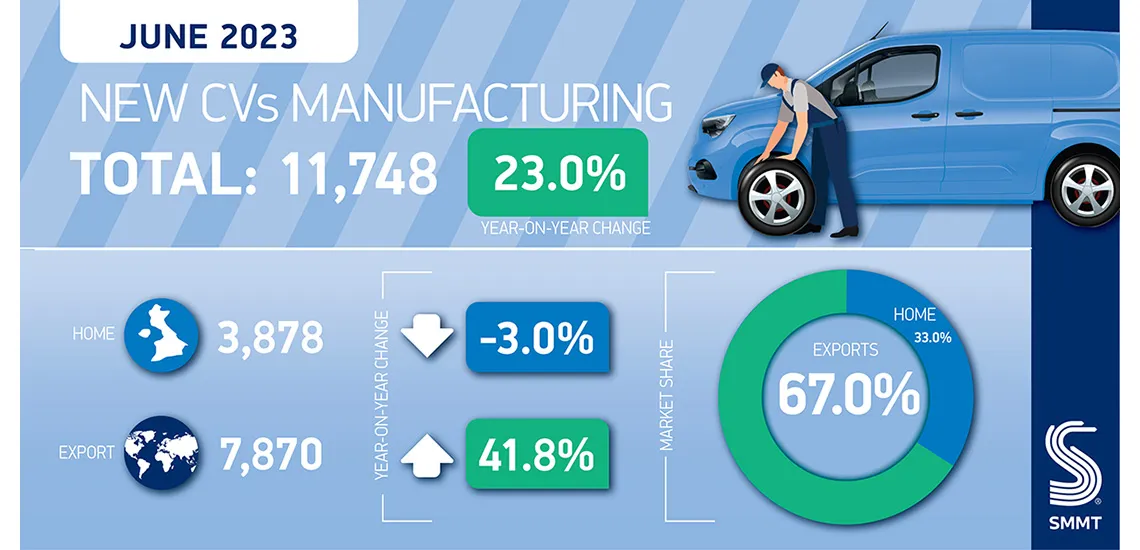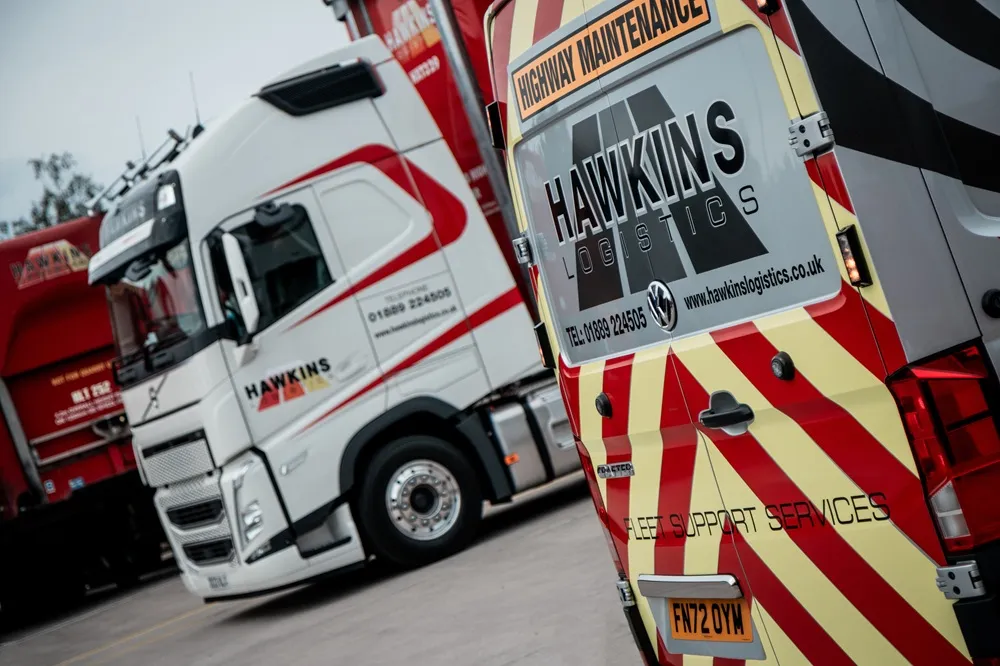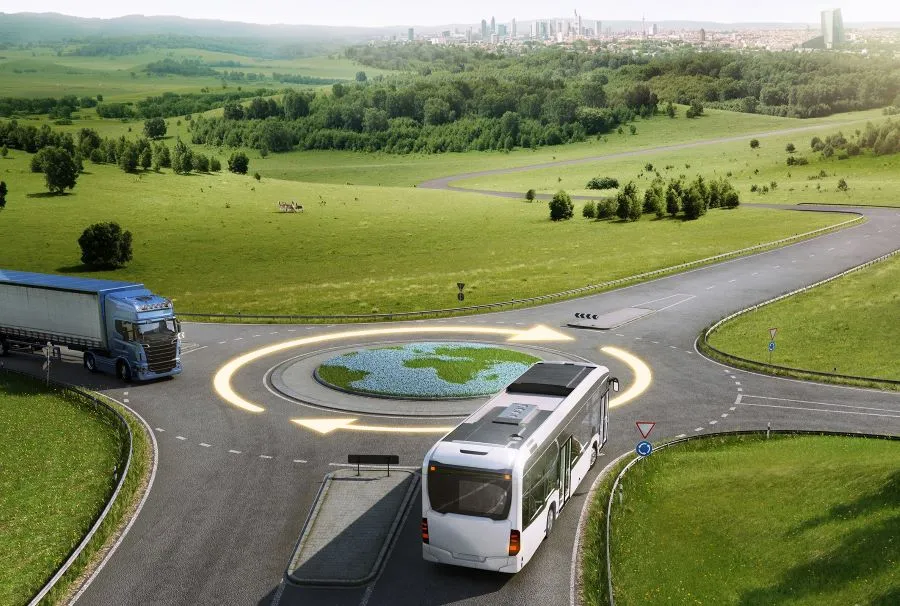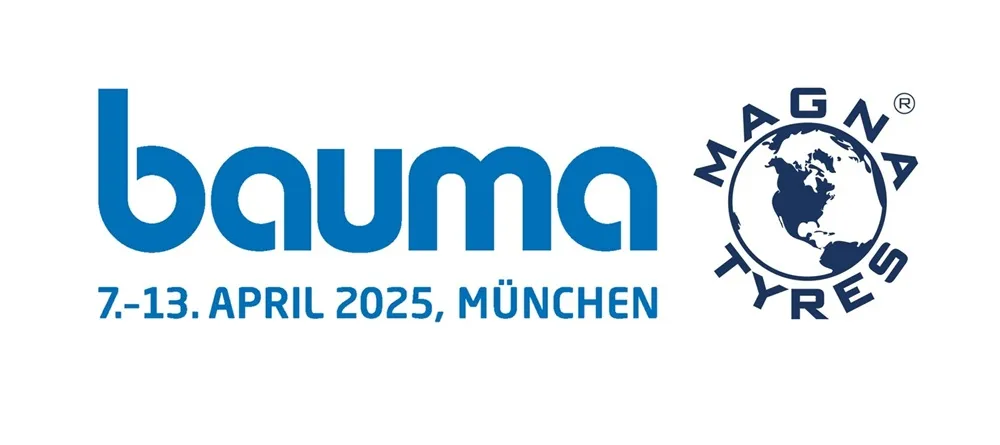Latest independent outlook expects light CV production to grow 44.0% this year to 114,500 units.
Best First Half to a Year since 2011 as CV Output increases 16%
UK commercial vehicle manufacturing grew 16% in the first six months of the year as 58,675 units rolled off factory lines, with June marking the third consecutive month of growth, according to the latest figures released today by the Society of Motor Manufacturers and Traders (SMMT). 11,748 units were produced in June, up 23%, and it also marks the best first half year for UK van production since 2011, as supply chain constraints continue to ease.
First half year production was 67% up on pre-pandemic 2019 volumes, with growth driven by overseas demand, exports of the latest British-built CVs rising 26.7% compared to the same period last year, at 37,803 units. Overseas shipments represented more than 6 in 10 (64.4%) of all CVs made since January, with by far the majority, 92.8%, shipped into the European Union, followed by America and Asia. Volumes for the domestic market increased marginally, with output up 0.5% to 20,872 units.
This growth is set to continue throughout the rest of the year, on the back of new model activity and, notably, the expected opening of a new electric van production facility in the North West. The latest independent outlook therefore forecasts light CV production to grow 44% to around 114,500 units this year. Volumes are then expected to rise again in 2024 to nearly 150,000 units providing economic conditions allow and the UK-EU trading relationship of electric vehicles continues to operate as it does today.
Free and fair trade is but one part of a competitive business environment and last month SMMT launched “Manifesto 2030: Automotive growth for a zero emission future” setting out five key pledges and policy actions, as part of an industrial strategy, to drive UK automotive manufacturing growth and help deliver net zero. As well as boosting global trade, the plan calls for all political parties to back the industry and address some critical competitiveness issues, notably; supporting the upskilling of the workforce as it transitions from making engines to batteries; provide affordable, green energy; drive a healthy electric vehicle market with world-class charging infrastructure, incentives and choice; and pull every lever to bolster investment in automotive manufacturing and its supply chain.








